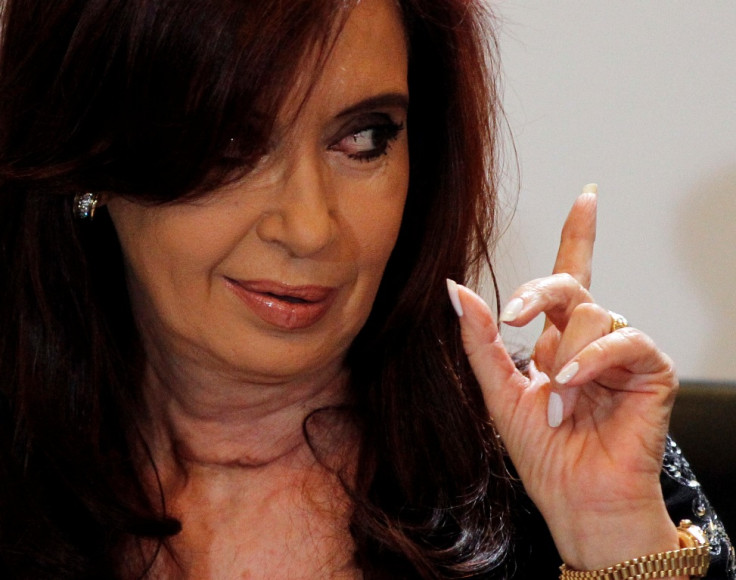Argentine Central Bank Chief Resigns After Apparent Clash with President Cristina Kirchner

Argentine central bank governor, Juan Carlos Fabrega, has resigned from his post after less than a year of service at a time when the country's economic woes grow.
President Cristina Kirchner accepted the resignation, and named her top securities and exchange regulator, Alejandro Vanoli, as replacement, according to a government statement.
Fabrega was appointed to run the central bank in November 2013.
Having been the favourite of Kirchner, Fabrega appeared to have lost her support amid the economic worries in the country.
In a speech on 30 September, Kirchner accused businessmen, farmers and bankers of conspiring to overthrow her government by withholding goods and trying to provoke devaluation in the peso with help from within the central bank.
"In the central bank there are more than 80,000 case files, some dating back to the 1980s, related to currency law violations by exporters, banks, and financial groups that aren't being dealt with. Billions of dollars that have been extracted...from the country," Kirchner said.
After Argentina defaulted for a second time in 13 years in July, Fabrega clashed with Fernandez and Economy Minister Axel Kicillof over the exchange rate, Bloomberg reported, citing Alejo Costa, a strategist at Puente Hnos Sociedad de Bolsa SA.
The resignation comes as the Latin American country is facing a number of economic woes, which are downgrading its reputation in the international debt market.
Argentina defaulted on 30 July after a US judge blocked a $539m (€427m, £333m) interest payment to holders of restructured bonds until it pays holdouts from a $95bn default in full. That was the country's second default in about 13 years.
The default stems from the country's long legal battle with hedge funds led by NML Capital and Aurelius Capital Management, which did not take part in its debt restructuring and have been demanding full payment on the debt.
Recently, a US judge held Argentina in contempt of court order for trying to pay interest to holders of its restructured credit, ignoring his ruling.
The country is also battling with inflation as high as 40% and depleting US dollar reserves.
The economy is likely to contract 2.1% in 2014, according to a poll of analysts by FocusEconomics.
© Copyright IBTimes 2025. All rights reserved.






















